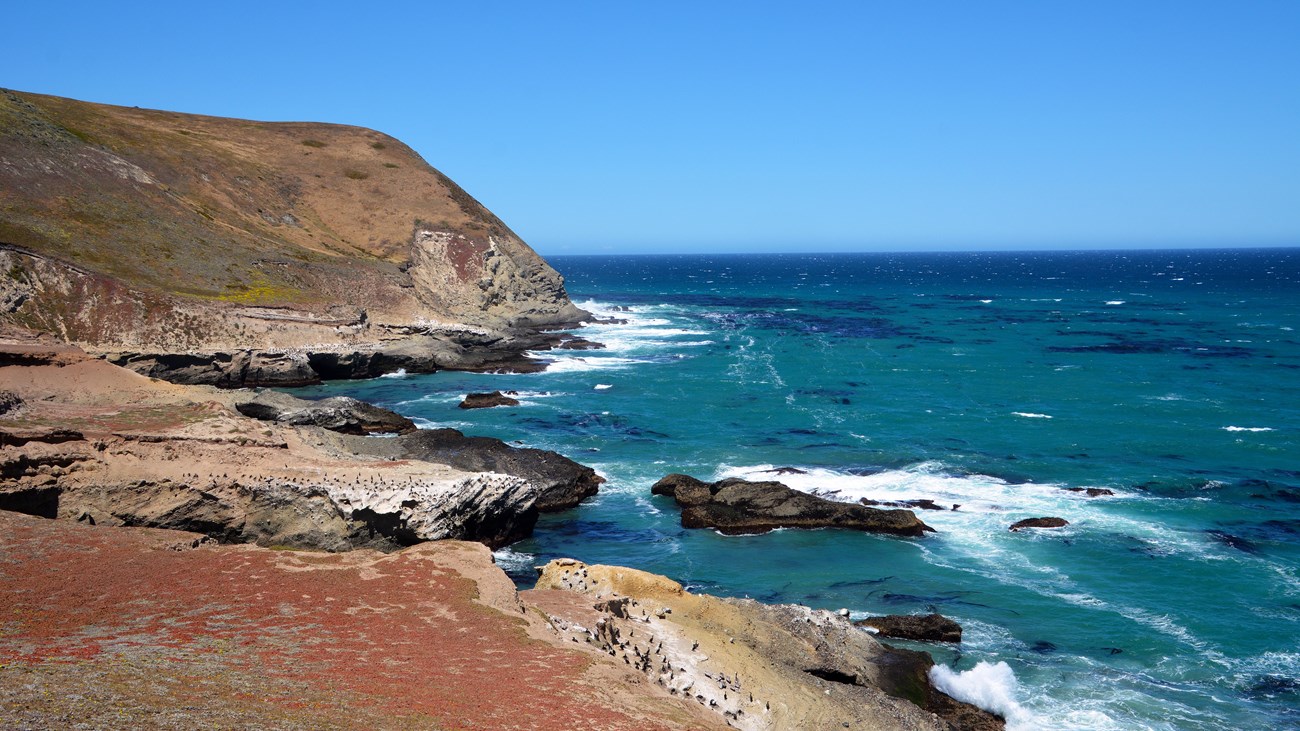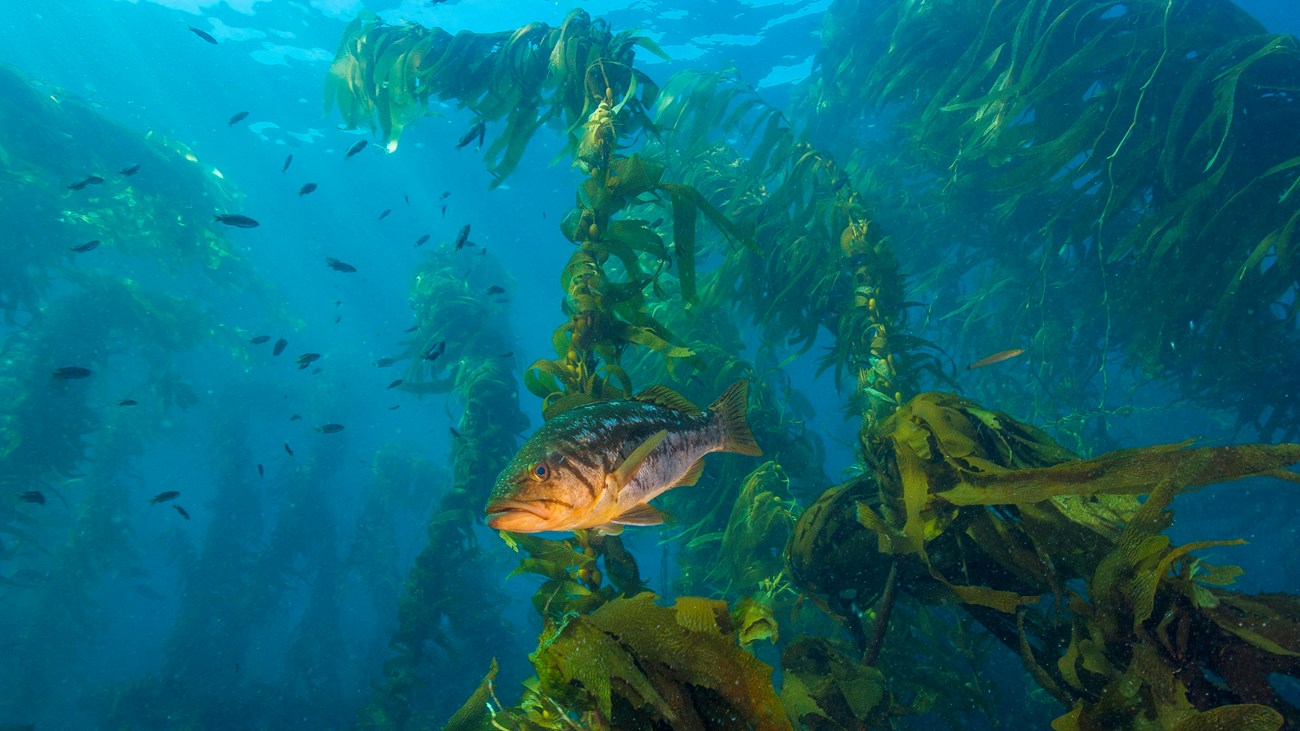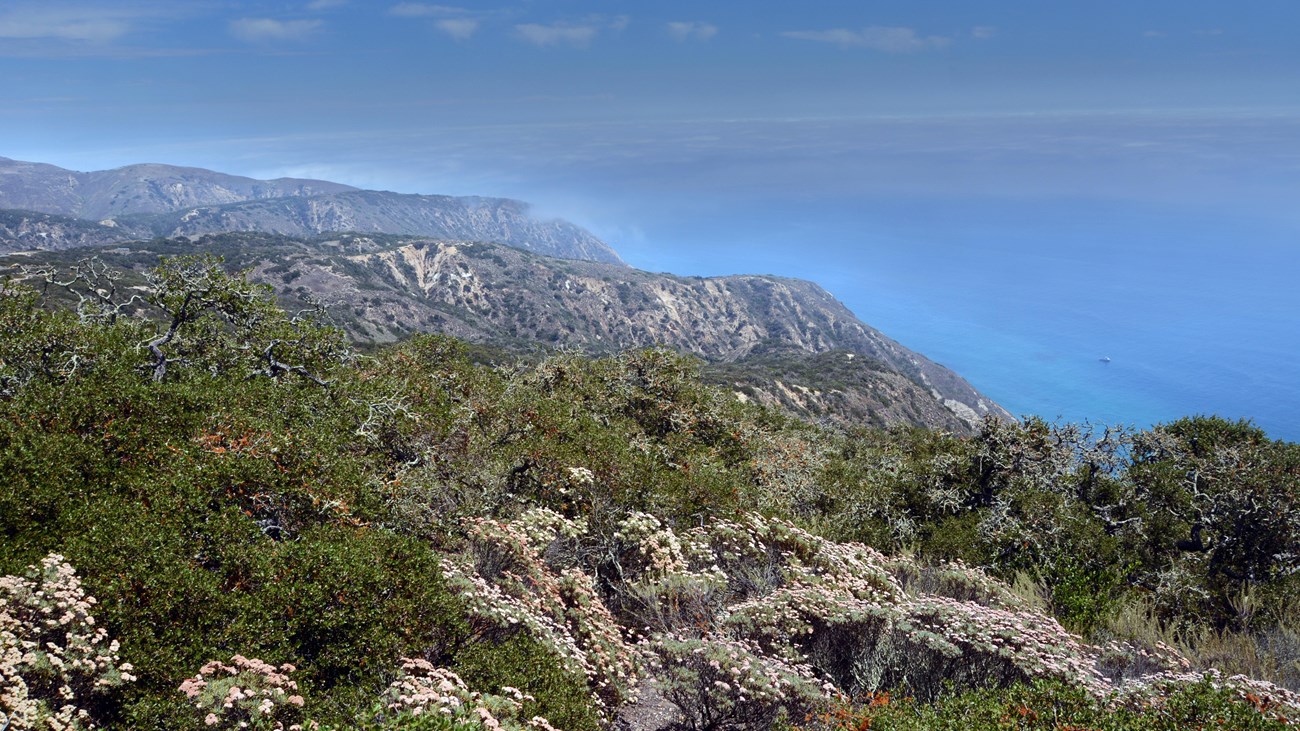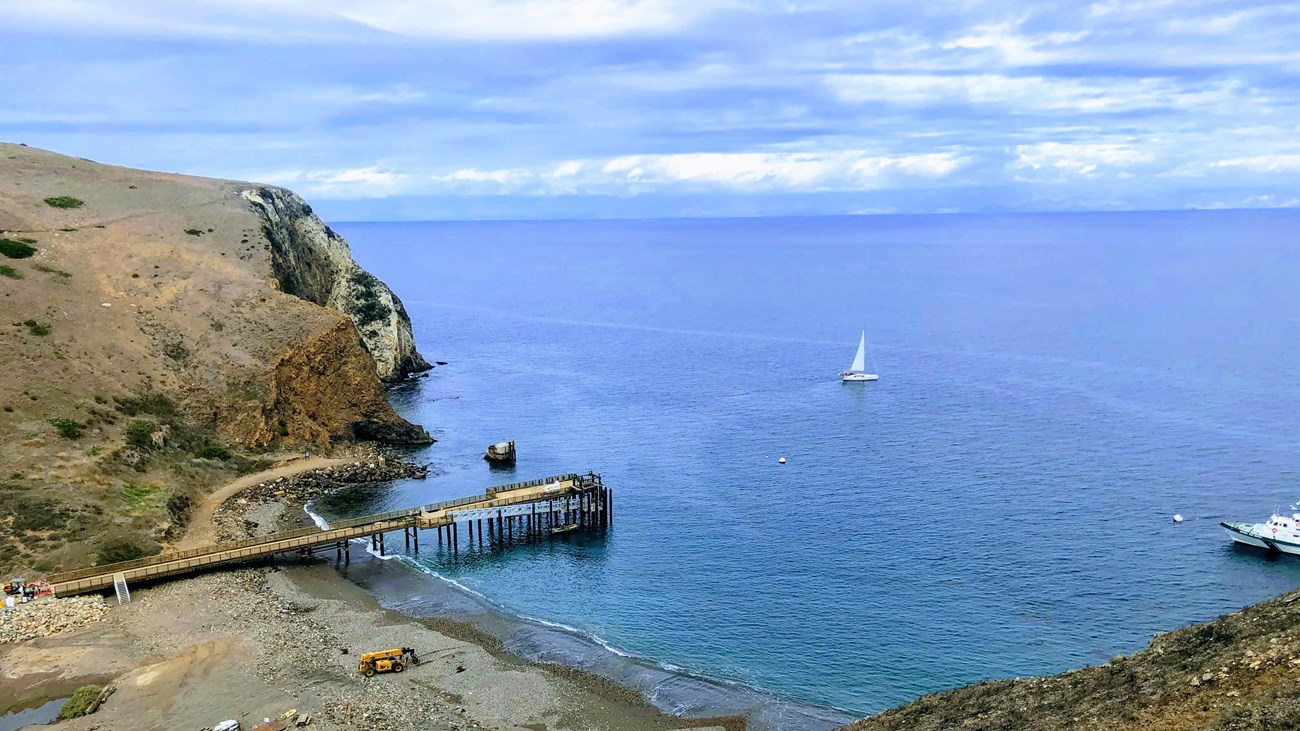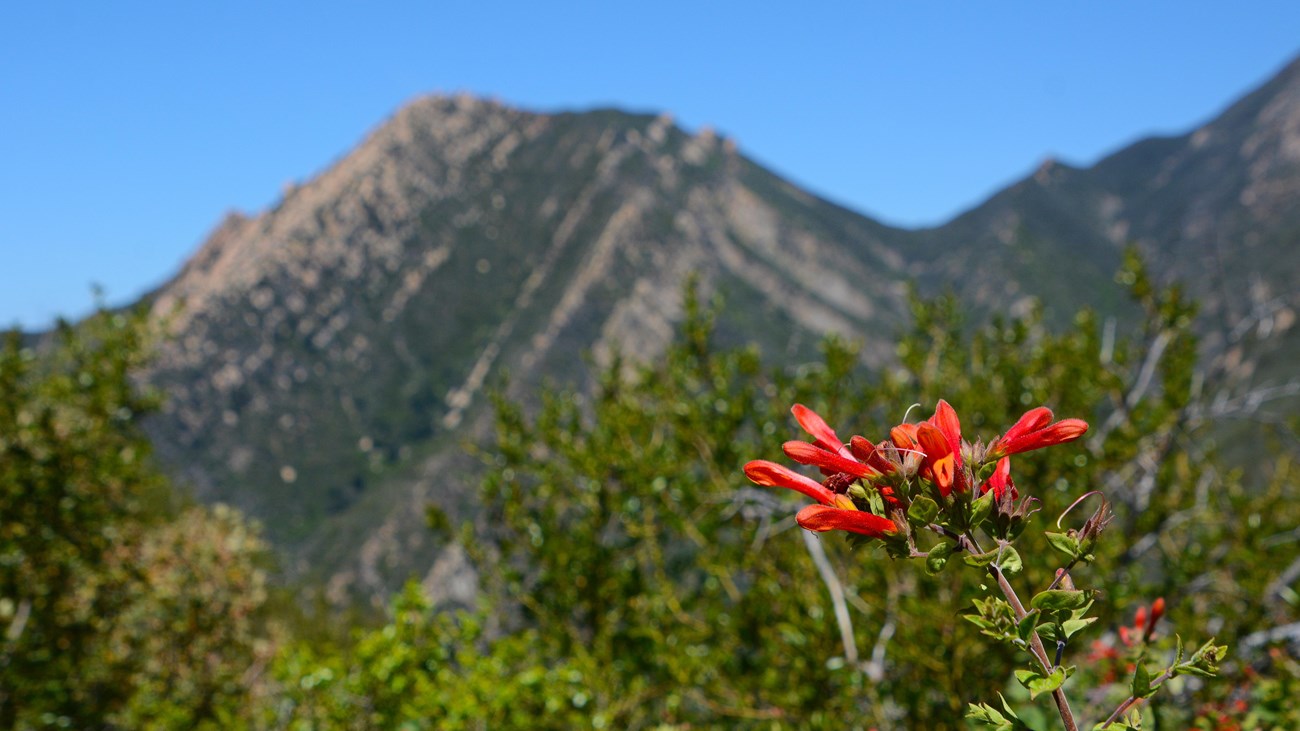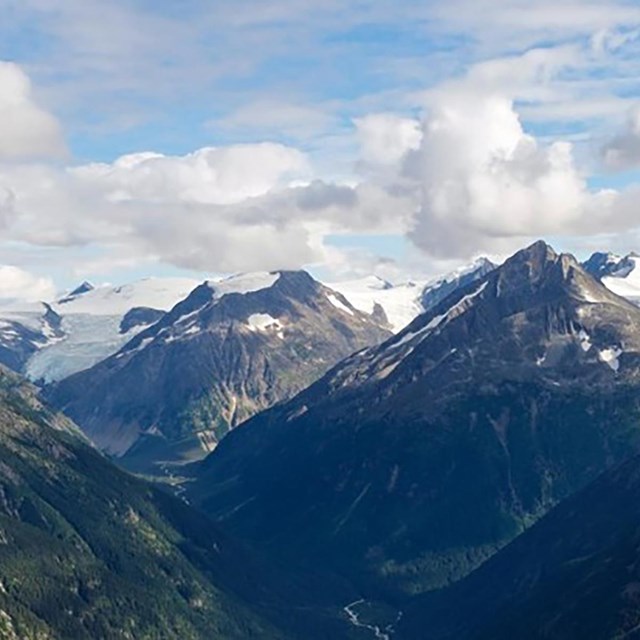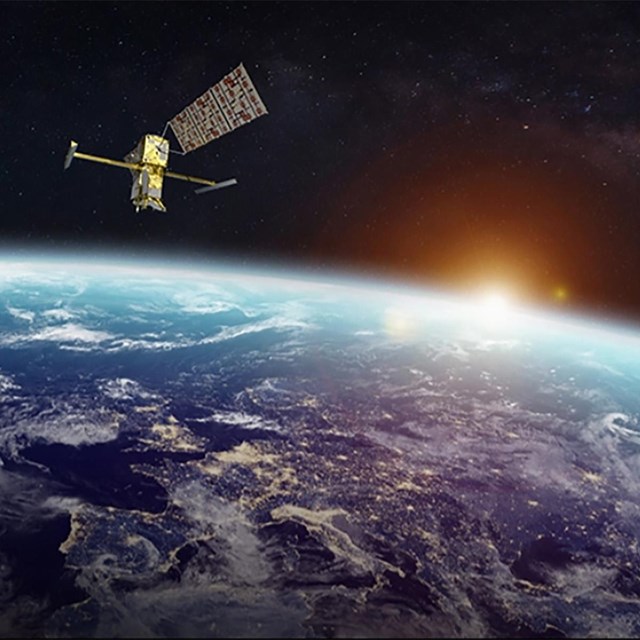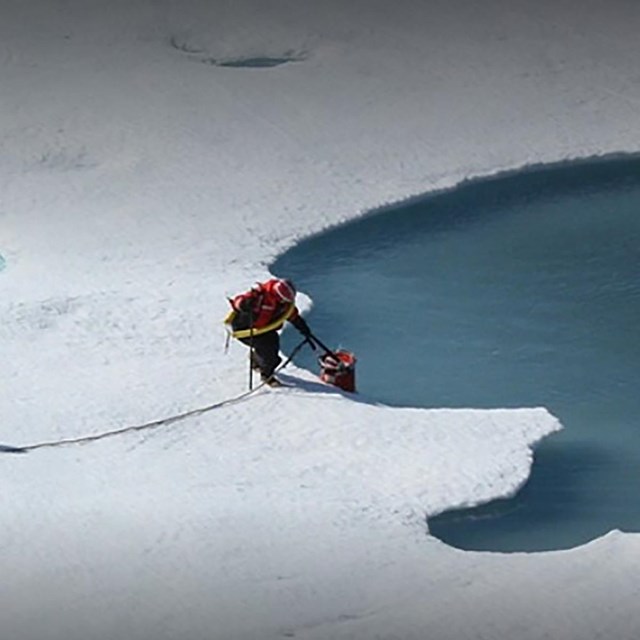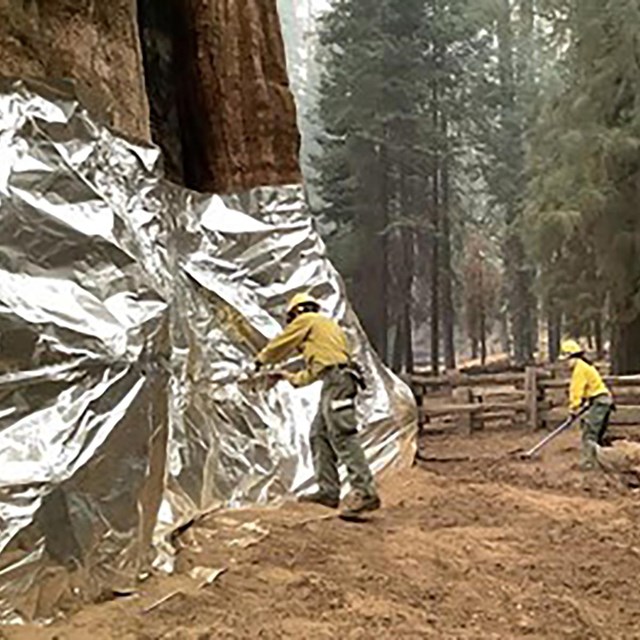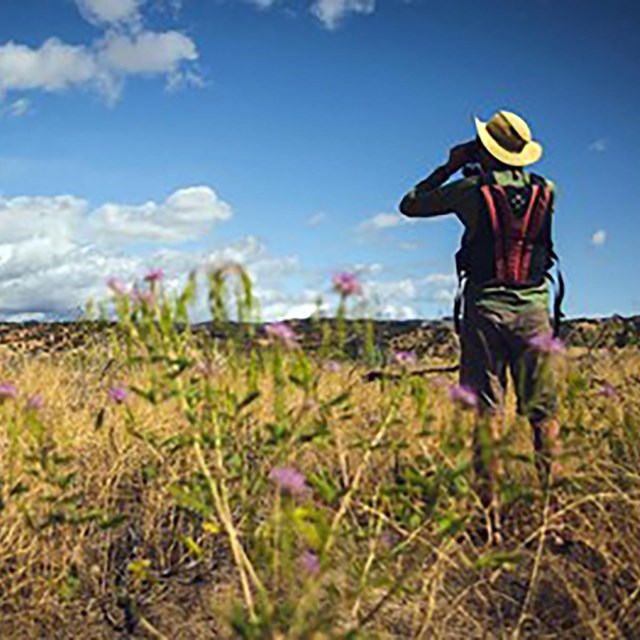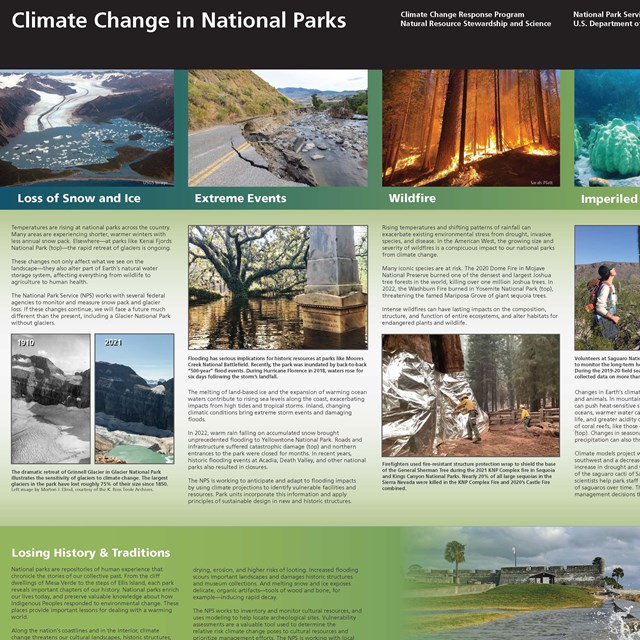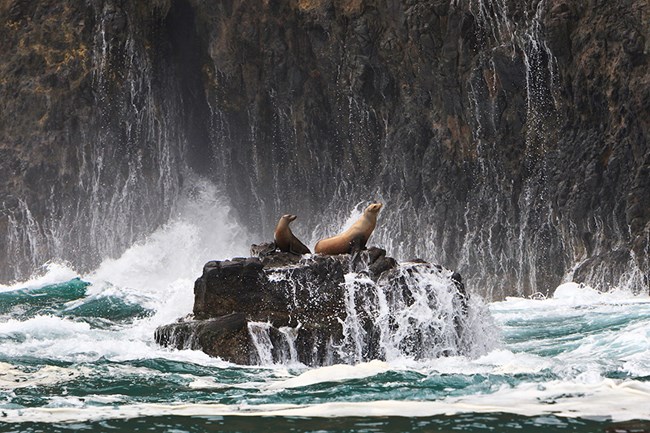
Tim Hauf, timhaufphotography.com Channel Islands National Park protects and restores habitats, ecosystems, and cultural landscapes for current and future generations. Human-caused climate change is impacting Channel Islands National Park in many ways, through warming air and water temperatures, ocean acidification, sea level rise, and other mechanisms. Channel Islands National Park encompasses five remarkable islands and their ocean environment, preserving and protecting a wealth of natural and cultural resources. While most of the islands’ land is protected by sea cliffs that tower well above the ocean below, rising sea levels and powerful storm surges threaten the park’s unique cultural resources and impact nearshore ecosystems. Beneath the ocean’s blue surface in Channel Islands National Park exists one of the most astonishing collections of marine life on the planet. Towering kelp forests, rocky reefs, and lush seagrass beds teem with life, sheltering over 1,000 species of algae, plants, and animals, from the tiniest invertebrates, to lumbering giant black sea bass, to prowling great white sharks. However, climate change is already impacting these unique ecosystems in tangible ways, allowing invasive marine species to flourish, exacerbating disease spread, disintegrating the shells of shellfish, and reducing the dissolved oxygen in ocean waters. Isolation over thousands of years has shaped the unique terrestrial ecosystems and cultural landscapes on the Channel Islands. Over 150 species and subspecies of plants and animals are endemic to Channel Islands National Park, meaning they are found nowhere else on earth. As human-caused climate change continues to alter long-term weather patterns, changes in temperature, moisture, and more frequent fires could have even more profound impacts on these special environments. While no person or organization can impact the planet’s climate trajectory alone, together we can influence change, as the solution to climate change is predicated on collective action. Channel Islands National Park is committed to doing our part to reduce our carbon footprint and adapt to the impacts of climate change. We are working with tribal partners to co-steward the islands using traditional perspectives and knowledge, enhancing our efforts towards natural and cultural resources. From ensuring that 100% of our island facilities’ primary power sources are solar, to restoring fog-capturing vegetation in ecosystems susceptible to erosion and drought, the park plans infrastructure and management of resources with a focus on climate change. While the unique cultural and natural history of the Channel Islands has been shaped by thousands of years of isolation, the effects of climate change are not limited to our park. The same factors of rising seas, warming temperatures, acidifying oceans, and more extreme weather events impacting the park are also occurring at home along the Southern California coast, and beyond. As you read this page, consider, how will climate change impact the place that you call home?
|
Last updated: August 22, 2023

